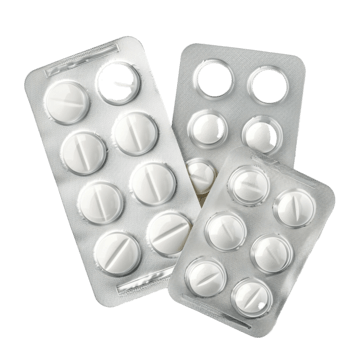Omeprazole

Omeprazole 10mg, 20mg, 40mg
Omeprazole is a proton pump inhibitor that reduces stomach acid production, commonly prescribed for the treatment of gastroesophageal reflux disease (GERD), peptic ulcers, and Zollinger-Ellison syndrome. By blocking the proton pumps in the stomach lining, it helps alleviate symptoms such as heartburn and acid indigestion, promoting healing and providing relief from excessive stomach acidity.
Order NowDescription
Omeprazole is a proton pump inhibitor (PPI) used to reduce the amount of acid produced in the stomach. It is commonly prescribed for conditions such as gastroesophageal reflux disease (GERD) and stomach ulcers. By inhibiting the proton pumps in the stomach lining, Omeprazole helps alleviate heartburn and promote healing of the esophagus and stomach.
Uses / Indications
- Gastroesophageal reflux disease (GERD)
- Peptic ulcers (gastric and duodenal)
- Erosive esophagitis caused by acid reflux
- Zollinger-Ellison syndrome (excessive gastric acid secretion)
- Prevention of stomach ulcers in patients taking NSAIDs
Dosage and Administration
Adults:
20 mg to 40 mg once daily, depending on the condition being treated.
Children (age and dosage depend on physician’s discretion):
Typically starts at 10 mg to 20 mg once daily.
Note: Dosage may vary based on medical condition or doctor’s advice.
How It Works (Mechanism of Action)
Omeprazole works by irreversibly inhibiting the hydrogen-potassium ATPase enzyme system (proton pump) in the parietal cells of the stomach lining. This action effectively reduces gastric acid secretion, leading to relief from symptoms of acid-related disorders.
Side Effects
Common side effects:
- Headache
- Nausea or vomiting
- Abdominal pain or discomfort
- Diarrhea
Rare/serious side effects:
- Severe allergic reactions (rash, itching, swelling)
- Kidney problems (increased creatinine levels, acute interstitial nephritis)
- Bone fractures (with long-term use)
Contact your healthcare provider if serious side effects occur.
Precautions / Warnings
- Inform your doctor if you have liver disease or if you are pregnant/breastfeeding.
- Long-term use should be monitored due to potential for vitamin B12 deficiency.
- May increase the risk of Clostridium difficile infection in the colon.
Drug Interactions
May interact with:
- Clopidogrel (may reduce its effectiveness)
- Warfarin (may increase bleeding risk)
- Certain antifungals and antibiotics
- Medications that are pH-dependent for absorption (e.g., certain antifungals)
Always inform your healthcare provider about any other medications or supplements you’re taking.
Storage Instructions
- Store at room temperature (20°C–25°C / 68°F–77°F)
- Keep away from moisture, heat, and direct light
- Keep out of reach of children
Missed Dose / Overdose
Missed a dose?
Take it as soon as you remember. If it’s almost time for your next dose, skip the missed one. Do not double up.
Overdose symptoms:
- Severe dizziness
- Confusion or agitation
- Blurred vision
- Fast heartbeat
Contact a poison control center or seek emergency medical help immediately.
Contraindications
- Allergic reaction to Omeprazole or any of its components
- Certain conditions such as low magnesium levels that can be worsened by PPIs
Brand Names / Alternatives
- Prilosec
- Losec
- Omeprazole magnesium (generic)
- Generic name: Omeprazole

